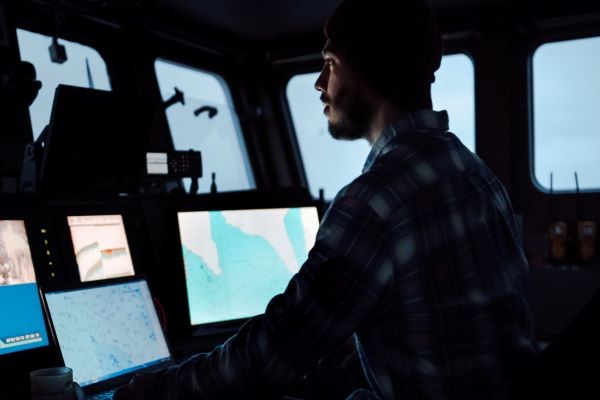The Sub-Committee on Navigation, Communications and Search and Rescue (NCSR) deals with all matters related to navigation and communication. These include the analysis and approval of ship routeing measures and ship reporting systems; carriage requirements and performance standards for navigational and communication equipment; the Long-Range Identification and Tracking (LRIT) system and the development of e-navigation.
The body also deals with search and rescue matters and the Global Maritime Distress and Safety System (GMDSS), including recognition of service providers. Joint working groups reporting to the NCSR Sub-Committee include the ICAO/IMO Joint Working Group on Harmonisation of Aeronautical and Maritime Search and Rescue and the Joint IMO/ITU Experts Group on Maritime Radiocommunication Matters.
The 9th session of the Sub-Committee took place from 21-30 June 2022 under the chairmanship of Nigel Clifford from New Zealand, supported by Vice Chair Alexander Schwarz from Germany.
Revision of guidelines on places of refuge
The Sub-Committee finalised a revision of the guidelines on places of refuge for ships in need of assistance. The draft revised assembly resolution will be submitted to the MSC and subsequently to the Marine Environment Protection Committee (MEPC) and the Legal Committee (LEG), for approval, with a view to adoption by the IMO assembly in 2023. IUMI has been involved in this process from the outset and participated in the review by providing input and comments on various proposed changes and amendments.
The guidelines were first adopted in 2003 to provide guidance for cases where a ship requires assistance, but safety of life is not involved (when safety of life is involved, SAR provisions should be followed). The proposed revision recognises that various organisational, operational and technological developments have taken place in a rapidly changing global maritime domain. Experience in handling situations of ships in need of assistance has been gained significantly worldwide and informed the guideline revisions
The new guidelines aim to provide the basis of an operational framework for coastal states, ship masters, operators and/or salvors, as well as other involved parties on how to handle and take a decision when a ship is in need of assistance and seeks a place of refuge.
Among other changes, a new section on media information and management has been proposed, recommending that states include in their administrations the capacity (including training) for dealing with media and requests for information in connection with managing a ship in need of assistance seeking a place of refuge.
Safety measures for non-SOLAS ships operating in polar waters
The Sub-Committee finalised the first set of draft amendments to the Polar Code, together with associated amendments to the SOLAS Convention, to incorporate new requirements for non-SOLAS ships concerning the safety of navigation and voyage planning. The amendments will be applicable to some non-SOLAS ships, i.e. fishing vessels of 24 metres in length overall and above, as well as pleasure yachts of 300 gross tonnage and upwards not engaged in trade and cargo ships of 300 gross tonnage and upwards but below 500 gross tonnage.
IMO's Polar Code sets out requirements to ensure the safety of ships operating under the harsh conditions of the Arctic and Antarctic areas, taking into account extreme temperatures and that critical equipment remains operational under those conditions.
The amendments aim to enhance the safety of ships operating under the special conditions the polar areas present, as well as that of those onboard. The Maritime Safety Committee is invited to approve the draft amendments for subsequent adoption with that they will come into force from 1 January 2026.
